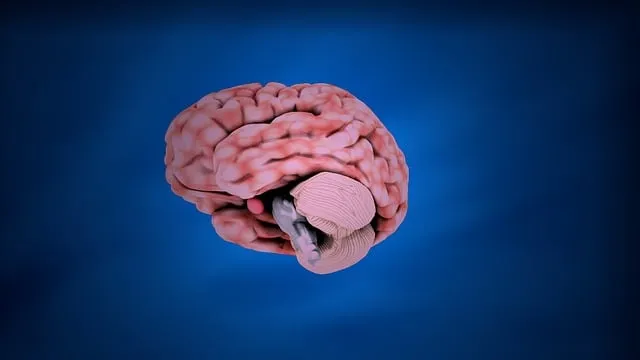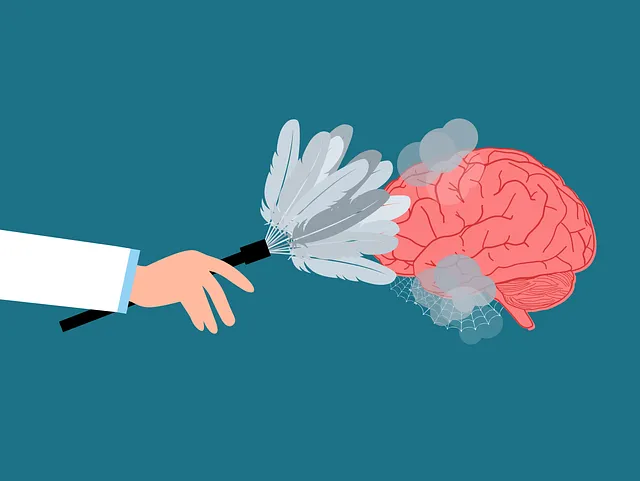Kaiser Permanente's Mental Health Initiative in Littleton focuses on accessible, holistic care through workshops, campaigns, and training to empower individuals with coping tools. Their innovative solutions, including risk assessment and mindfulness programs, prioritize mental health alongside physical well-being, setting a critical policy precedent for widespread accessibility and destigmatization of mental illness.
Mental health policy analysis is crucial in addressing the rising demand for accessible and affordable care. This article explores Kaiser Permanente’s pioneering initiative in this realm, specifically focusing on their Mental Health Access Center in Littleton. We delve into the challenges faced by individuals seeking services and propose policy implications to expand mental healthcare reach. Additionally, we highlight advocacy strategies that can drive positive change, ensuring a healthier, more supportive society for all.
- Understanding Kaiser Permanente's Mental Health Initiative
- Accessing Services: Challenges and Solutions in Littleton
- Policy Implications for Expanding Mental Healthcare
- Advocacy Strategies to Drive Positive Change
Understanding Kaiser Permanente's Mental Health Initiative

Kaiser Permanente’s Mental Health Initiative is a commendable effort to enhance mental well-being and accessibility within their healthcare system. The organization has established dedicated access centers, such as the one in Littleton, aimed at providing comprehensive mental health services. This initiative recognizes the growing importance of addressing mental health issues proactively. By offering diverse programs, it aims to cater to a broad spectrum of individuals seeking support.
The strategy involves various components, including Stress Management workshops and Public Awareness Campaigns Development to educate communities about mental health. Furthermore, Social Skills Training is implemented to empower individuals with coping mechanisms and enhance their overall resilience. Kaiser Permanente’s holistic approach exemplifies its commitment to transforming lives by prioritizing mental health as an integral part of overall wellness.
Accessing Services: Challenges and Solutions in Littleton

Accessing mental health services in Littleton presents unique challenges that require innovative solutions. The Kaiser Permanente Mental Health Access Center serves as a beacon of hope for many residents, offering comprehensive care tailored to individual needs. However, barriers such as limited resources, stigma, and geographical constraints can deter individuals from seeking necessary support.
To address these issues, resilience-building initiatives and self-esteem improvement programs are being integrated into the community. These efforts aim to foster an environment where mental health concerns are openly discussed and treated with the same urgency as physical well-being. Additionally, implementing robust risk assessment protocols for mental health professionals ensures that individuals receive safe, evidence-based care. By combining these strategies, Littleton is taking significant steps towards enhancing mental health accessibility and improving overall community resilience.
Policy Implications for Expanding Mental Healthcare

The expansion of mental healthcare services should be a priority for policy makers, especially when considering models like the Kaiser Permanente Mental Health Access Center in Littleton. This type of center exemplifies a comprehensive approach to addressing mental health issues by integrating care within primary healthcare settings. Policy implications include increasing access to mental health resources through such innovative models, ensuring cultural sensitivity and diversity in service delivery, and promoting early intervention strategies.
Implementing public awareness campaigns focused on destigmatizing mental illness and encouraging self-awareness exercises can also be effective. These initiatives aim to foster a society that recognizes the importance of mental well-being, encourages individuals to seek support, and promotes healthy coping mechanisms for stress management. By integrating these policy interventions, communities can work towards building resilient and supportive environments where everyone has access to quality mental healthcare.
Advocacy Strategies to Drive Positive Change

Advocacy plays a pivotal role in shaping mental health policies and ensuring access to quality care for all. When it comes to driving positive change, strategic initiatives can make a significant impact. Organizations like Kaiser Permanente’s Mental Health Access Center in Littleton have set an example by advocating for comprehensive mental wellness programs. Their efforts include public awareness campaigns that dispel stigma and educate communities about the importance of emotional well-being.
One effective strategy is the development and implementation of Mindfulness Meditation programs, which promote relaxation techniques and enhance overall resilience. By fostering open conversations and providing accessible resources, these initiatives encourage individuals to prioritize their mental health. Additionally, Kaiser Permanente’s approach emphasizes the integration of Emotional Well-being Promotion Techniques into primary care settings, ensuring that mental health support becomes an integral part of routine healthcare access.
Mental health policy analysis reveals that initiatives like Kaiser Permanente’s Mental Health Access Center in Littleton offer valuable insights into improving healthcare accessibility. By understanding successful models and advocating for policy changes, we can drive positive transformations in mental healthcare, ensuring more individuals receive the support they need. Expanding access to services, as demonstrated by this case study, is crucial for fostering well-being within communities.






